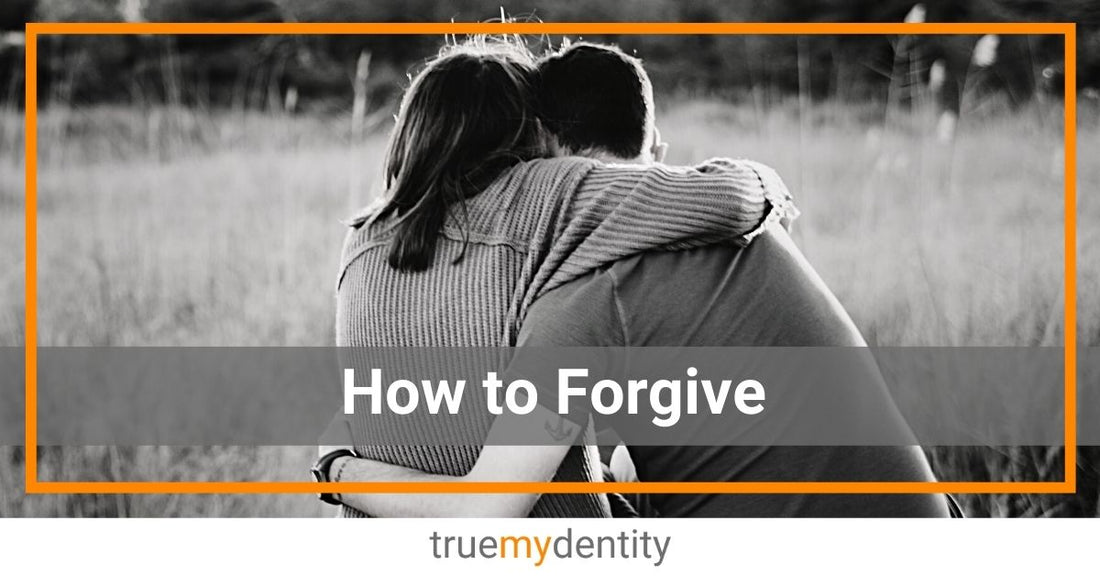How to Forgive Someone: Understanding the Role of Empathy in Forgiveness
How to Forgive Someone: Understanding the Role of Empathy in Forgiveness
Blog Article
Comprehending the Value of Forgiveness in Recovery Relationships
Mercy is typically watched as an easy act of allowing go, yet its significance in healing connections expands far beyond plain absolution. What remains to be discovered is the profound effect mercy can have on private development and communal harmony.
The Meaning of Forgiveness
Although forgiveness is frequently perceived as a straightforward act of allowing go, its interpretation incorporates a complicated interplay of psychological and psychological procedures. At its core, mercy is the conscious choice to launch sensations of bitterness or revenge toward a private or group that has triggered damage. This procedure is not simply regarding absolving the wrongdoer; instead, it includes a profound emotional improvement that can cause individual growth and healing.
Forgiveness is multifaceted, typically defined by a person's interior struggle to reconcile their pain with the need for tranquility. It calls for identifying the wrongs committed, processing the linked feelings, and inevitably choosing to move onward without the worry of displeasure. This selection often involves a cognitive change, where one reframes their understanding of the disobedience and the criminal, allowing for compassion and understanding to arise.
Significantly, forgiveness does not imply pardoning the actions or neglecting the violation; it is an intentional act that focuses on psychological wellness. By defining forgiveness in this manner, we can value its role in assisting in healthier connections and fostering emotional strength, establishing the phase for deeper expedition right into its benefits.
Psychological Advantages of Mercy
Forgiveness uses considerable emotional benefits that can exceptionally affect an individual's mental health and overall wellness. When an individual chooses to forgive, they actively release sensations of bitterness, bitterness, and temper, which can or else produce a hefty emotional concern. This launch commonly causes a decrease in stress and stress and anxiety, advertising a feeling of peace and emotional security.
In addition, forgiveness promotes a raised capacity for empathy and empathy. By recognizing the perspective of the culprit, people can grow a much deeper emotional durability, which improves their capacity to cope with future challenges. This process not only enhances emotional guideline yet also contributes to a much more favorable expectation on life.
In addition, forgiving others can strengthen one's self-confidence and self-respect. It permits people to redeem their personal power, breaking complimentary from the adverse cycles of victimhood - The importance of forgiveness. This newly found empowerment can bring about healthier emotional actions and more powerful social relationships
Forgiveness vs. Settlement
The difference between forgiveness and settlement is essential in recognizing the dynamics of healing connections. Mercy is an inner process in which a specific picks to let go of bitterness and unfavorable sensations towards a person who has actually triggered injury. It is largely a personal journey, concentrated on psychological launch and self-healing, enabling one to progress without lugging the burden of past grievances.
On the other hand, settlement involves rebuilding and bring back the relationship to a state of count on and common regard. This process often calls for open interaction, energetic participation from both events, and a commitment to addressing the underlying concerns that resulted in the problem. While forgiveness can happen individually, settlement necessitates the readiness of both individuals to participate in dialogue and pursue a shared understanding.
It is very important to keep in mind that forgiveness does not always lead to settlement. An individual might forgive another without deciding to restore the connection, specifically if count on has actually been irrevocably damaged or if the partnership is considered harmful. Understanding this difference enables individuals to browse their feelings effectively and make notified choices regarding their connections.
Actions to Cultivate Forgiveness
Growing forgiveness is a deliberate procedure that involves a number of key actions intended at assisting in emotional healing. The primary step is acknowledging the discomfort brought on by the infraction. Acknowledging one's sensations is vital, as it permits people to refine their feelings truly.
Following, reviewing the case and understanding its impact can provide clarity. This reflection ought to include analyzing the motivations behind the culprit's activities and acknowledging that everybody is imperfect.
The third action includes making an aware choice to forgive. This choice is crucial, as it represents a determination to let go of resentment and progress.
Subsequently, sharing sensations in a positive fashion can be helpful - The importance of forgiveness. Whether via journaling, speaking with a trusted pal, or looking for therapy, articulation of emotions can assist in the mercy journey
Real-Life Instances of Mercy

In an additional instance, a dense group of close friends faced a considerable rift after one member unintentionally shared a personal trick. Rather than harboring bitterness, the impacted close friend determined to forgive, comprehending the significance of valuing the friendship over the mistake. This choice encouraged open dialogue and ultimately strengthened their link.

Verdict
To conclude, forgiveness plays an essential role in the recovery of relationships by promoting the launch of adverse emotions and promoting compassion. By differentiating between mercy and settlement, individuals can participate in a positive process that boosts emotional well-being. Executing actions to grow forgiveness can cause transformative outcomes, enhancing links and advertising a helpful setting. Ultimately, the method of mercy functions as a catalyst for individual development and the nurturing of healthier interpersonal characteristics.

Report this page